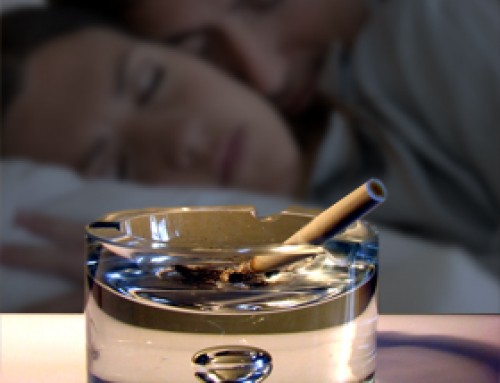Every person experiences some sort of physical pain which becomes more common with age, regardless of the cause whether it’s from the nerves, muscle and bone. Over the years, it’s been found out that this kind of pain becomes more widespread in people ages 50 and above!
However, a new study shows that there’s another factor which could lead to the development of this type of pain: non-restorative sleep. People who experience non-restorative sleep wake up feeling exhausted even after they got the usual amount of sleep.
Researchers found out that non-restorative sleep is the strongest predictor of new onset widespread pain. Despite the findings, there’s a silver lining behind all of this for people with widespread pain. Improving one’s quality of sleep can be the key to adding to one’s relief of pain. Here are some healthy sleeping habits to help you have a more restful sleep at night:
Avoid caffeine, nicotine and other chemicals that interfere with getting a good night’s sleep. It’s common knowledge that caffeine is a stimulant and the same is true with nicotine. If you can’t avoid these things at all, you should at least stop taking them four to six hours before bedtime.
Make your bedroom the ideal place for sleeping. Keeping your bedroom cool and dark promotes slumber. You can have an even better sleeping environment with the use of earplugs or a “white noise” device. If you work at night and you have to sleep during the day, use heavy curtains that block out the sun and make sure you have a comfortable bed.
Create a soothing routine before you go to sleep. No, it’s not ideal to do cardio before you go to bed. Rather, you can ease the transition from wake time to sleep time with a period of relaxing activities. Watch TV, do relaxing breathing exercises… basically, all you have to do is avoid stressful activities and discussions which cause the body to become alert.
Don’t force yourself to fall asleep. Struggling to go to dreamland only leads to frustration. But don’t stare a clock in your bedroom because this will just stress you out, making it harder for you to fall asleep. If you’re not asleep within half an hour after getting into bed, get up, go to another room, and do something relaxing or at least get a glass of warm milk.
Keep a consistent sleep schedule. Having a consistent sleep schedule ensures your body gets the full benefits of a better quality sleep. As you go into bed at the same time each day, the body’s internal clock becomes set to expect sleep at a certain time night after night.
Avoid late afternoon naps. It’s ok to make naps a regular part of the day but for those who have trouble staying asleep, late afternoon naps could be the culprit. When you take a nap late in the afternoon, your body’s sleep-drive tends to decrease.
Have a balanced fluid intake. By drinking the right amount of fluids, you won’t be bothered by sleep problems such as waking up from thirst or being awakened by a desire to go to the bathroom.
These tips are easy to include in your nightly routine and sticking with them lets you have a bigger chance of achieving a more restful sleep to help your body feel more restored and delay the onset of widespread pain. But it’s also important to follow through whenever you need help falling asleep and understand when you should seek treatment from top sleep therapists such as Rebecca Ginder! Click here to schedule an appointment with Rebecca Ginder!





